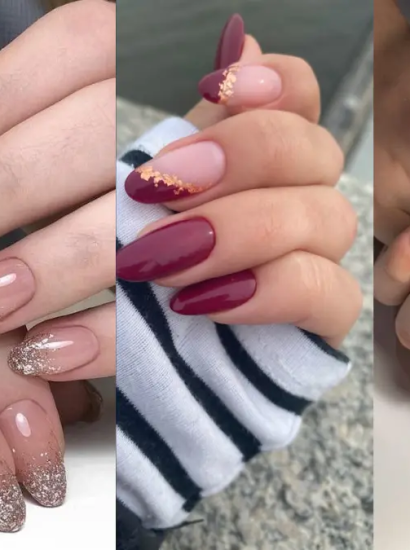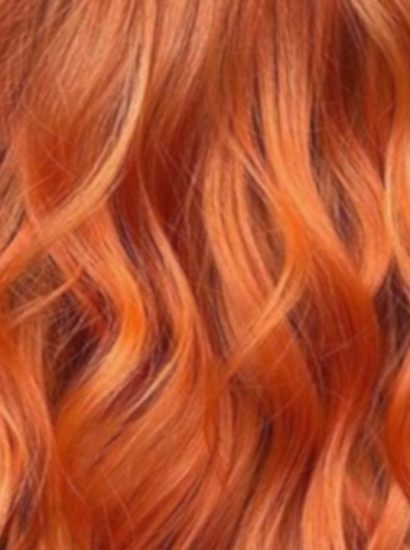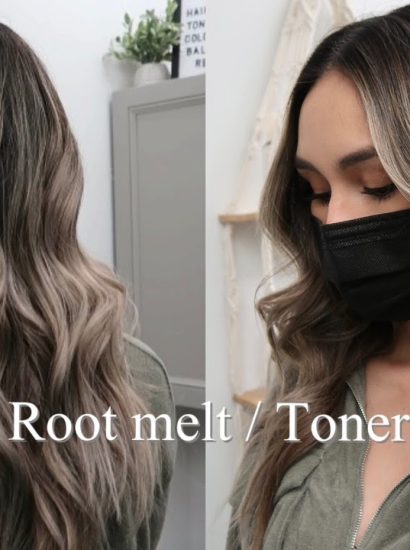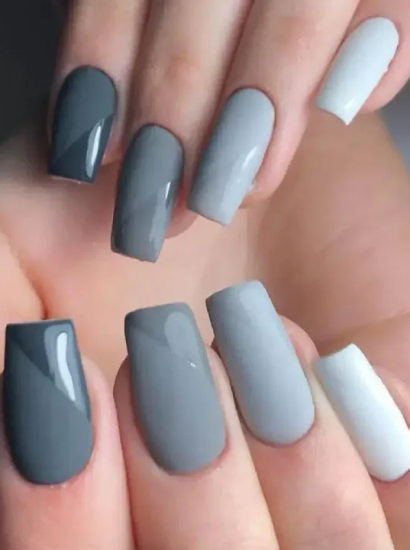Maintaining healthy dreadlocks takes patience and care, especially when it comes to scalp health. One of the most common issues people face is flaking or itching on the scalp. While it might seem like simple dandruff, sometimes the problem is actually a dry scalp.
Understanding the difference between dry scalp and dandruff in dreads is crucial because the treatments for each are very different. Treating dry scalp with anti-dandruff products or vice versa can make the problem worse. This guide explains the causes, symptoms, and best solutions to help you keep your scalp healthy and your dreads clean.
Understanding Dry Scalp
A dry scalp occurs when the skin on your head lacks enough moisture. The scalp, like the rest of your skin, needs hydration and natural oils to stay balanced. When it becomes too dry, it begins to flake and itch.
For people with dreads, dry scalp can happen because oils from the scalp have a harder time traveling down the length of the locs. Without proper moisture, the scalp can become tight, flaky, and irritated.
Common causes of dry scalp in dreads include harsh shampoos, infrequent washing, dehydration, cold weather, and a lack of oil in the scalp care routine.
Understanding Dandruff
Dandruff, on the other hand, is not just dryness. It is a scalp condition caused by an overgrowth of a yeast-like fungus called Malassezia, which feeds on oils on the scalp. This leads to irritation, excessive shedding of skin cells, and flaking that looks similar to dry scalp but has a different origin.
Dandruff often produces larger, oily flakes that can stick to hair strands and cause itching, redness, and inflammation. Unlike dry scalp, dandruff may persist even if you moisturize the scalp regularly.
The Main Difference Between Dry Scalp and Dandruff
While both issues can cause flakes and discomfort, the key difference lies in moisture levels and scalp condition.
- Dry scalp happens due to lack of moisture and oils. The flakes are usually small, dry, and white.
- Dandruff occurs from excess oil, fungus, or buildup. The flakes tend to be larger, yellowish, and greasy.
Another difference is in the symptoms. Dry scalp usually feels tight and itchy, while dandruff often leads to oily roots, irritation, and sometimes a musty smell.
Knowing which one you have helps you choose the right solution and avoid using products that make the issue worse.
Common Causes of Dry Scalp in Dreads
Several factors contribute to dry scalp in people with dreadlocks. These include:
- Overwashing: Frequent washing removes natural oils that protect the scalp.
- Harsh shampoos: Sulfate-based shampoos strip essential moisture.
- Cold or dry weather: Lack of humidity dries out the scalp quickly.
- Dehydration: Not drinking enough water affects the skin, including your scalp.
- Product buildup: Using heavy creams, gels, or oils can clog the scalp and cause dryness beneath the buildup.
To prevent dry scalp, it’s important to use gentle, residue-free products and maintain a consistent moisturizing routine.
Common Causes of Dandruff in Dreads
Dandruff in dreads is usually caused by fungal overgrowth, product residue, or poor scalp hygiene. Here are some common triggers:
- Malassezia fungus: This microorganism thrives on oil and can cause flaking and irritation.
- Dirty or oily scalp: Not washing enough allows sebum, sweat, and dirt to build up.
- Residue buildup: Heavy oils or waxes trap moisture and bacteria, encouraging dandruff.
- Stress and diet: High stress or a diet low in zinc, B vitamins, and healthy fats can worsen dandruff.
Keeping the scalp clean and balanced is the key to controlling dandruff in dreadlocks.
Symptoms to Help You Identify the Issue
If you are not sure whether you have dry scalp or dandruff, pay attention to these signs:
Dry Scalp Symptoms:
- Small, light, and powdery flakes.
- Tight or itchy scalp.
- Relief after applying moisturizing oils or sprays.
- Flakes appear mostly in winter or after washing.
Dandruff Symptoms:
- Larger, greasy flakes that may stick to dreads.
- Persistent itchiness even after moisturizing.
- Oily scalp or redness.
- Sometimes mild odor or irritation.
Taking note of these details helps you decide the right treatment and avoid worsening the condition.
Best Treatments for Dry Scalp in Dreads
Treating dry scalp focuses on restoring moisture and balancing hydration. Here are the best remedies and practices:
Moisturizing Oils
Natural oils such as jojoba, argan, or coconut oil mimic the scalp’s natural sebum and lock in moisture. Apply a few drops directly to your scalp and gently massage it in after washing.
Gentle Shampoo
Use a sulfate-free, residue-free shampoo that cleans without stripping natural oils. Wash your scalp every one to two weeks, depending on your hair’s needs.
Scalp Sprays and Leave-Ins
Hydrating sprays made with aloe vera, rose water, or tea tree water can refresh your scalp between washes. Spray lightly and massage to increase circulation.
Protect From Harsh Conditions
Wear a satin scarf or cap during cold weather to protect your scalp from dryness. Avoid sleeping on rough fabrics that absorb oils from your hair.
Nutrition and Hydration
Drink plenty of water and eat foods rich in omega-3 fatty acids to keep your skin and scalp hydrated from within.
Best Treatments for Dandruff in Dreads
Dandruff requires cleansing and controlling the yeast or buildup causing the irritation.
Use an Anti-Dandruff Shampoo
Choose shampoos that contain active ingredients like pyrithione zinc, ketoconazole, or selenium sulfide. These help reduce fungal growth. Make sure to rinse thoroughly to prevent residue buildup in your locs.
Apple Cider Vinegar Rinse
Apple cider vinegar helps balance scalp pH and remove residue. Mix one part vinegar with three parts water and pour it over your scalp after shampooing. Leave it for a few minutes before rinsing with water.
Tea Tree Oil Treatment
Tea tree oil has antifungal properties that combat dandruff naturally. Mix a few drops with carrier oil like coconut or olive oil and massage into the scalp before washing.
Clarifying Wash
Once a month, use a clarifying shampoo to deep-clean your dreads and scalp. This removes oil, dirt, and old product that may encourage dandruff.
Regular Washing
Keeping a consistent wash routine every 7 to 10 days helps prevent buildup and fungal growth.
Preventive Care for a Healthy Scalp and Dreads
Healthy dreadlocks begin with a healthy scalp. To prevent both dry scalp and dandruff:
- Wash your dreads regularly with mild, residue-free products.
- Avoid applying heavy oils directly to your scalp.
- Massage your scalp to stimulate natural oil production.
- Moisturize regularly using natural ingredients.
- Keep your hair and scalp protected from harsh weather.
- Maintain a healthy diet with plenty of water, vitamins, and minerals.
Consistent care and attention can prevent flaking, itching, and discomfort altogether.
Conclusion
When it comes to dry scalp vs dandruff in dreads, understanding the difference is the first step toward solving the problem. Dry scalp stems from lack of moisture, while dandruff is caused by excess oil, fungus, or buildup. Each requires a different approach—one focused on hydration and the other on cleansing and treatment.
By using the right shampoos, oils, and natural remedies, you can restore balance to your scalp and maintain clean, healthy dreadlocks. Regular maintenance, a gentle hair care routine, and proper nutrition will keep flakes and irritation at bay, allowing your locs to thrive.
FAQs
1. Can you have both dry scalp and dandruff at the same time?
Yes. Sometimes a person may have areas of dry scalp alongside oily patches where dandruff forms. In this case, balance is key—use gentle cleansers and light moisturizing treatments.
2. How often should I wash my dreads to avoid dandruff?
Most people with dreads should wash their scalp every 7 to 10 days. Washing too often can cause dryness, while infrequent washing may lead to buildup and dandruff.
3. Is it okay to use oil if I have dandruff?
Use oils carefully. Some oils, like coconut or olive oil, can feed the fungus that causes dandruff if left on too long. Stick to antifungal oils like tea tree or peppermint oil.
4. Can dry scalp cause hair loss in dreads?
Severe dry scalp that leads to constant itching and scratching may cause hair breakage or thinning at the roots. Keeping your scalp moisturized can help prevent this.
5. What is the best natural remedy for itchy scalp with dreads?
A diluted apple cider vinegar rinse or a mix of tea tree oil and carrier oil can calm itchiness and remove buildup naturally without harming your locs.
Also read: From Primer to Setting Spray: Understanding Common Makeup Terms





